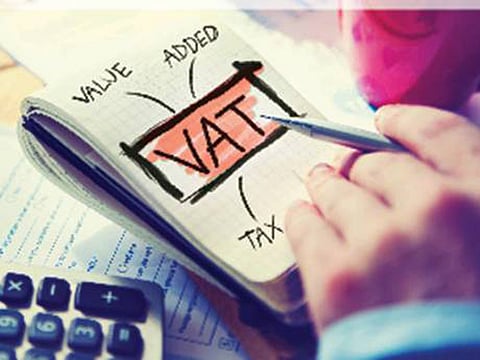UAE's importers need a VAT re-check to take goods out of free zones for GCC shipments
With VAT 301 deactivated, they need pre-approval to ensure goods don't get stuck

Also In This Package
Dubai: UAE businesses bringing out goods from free zones for shipment to other Gulf states have to tick another box on their VAT checklist. In specific terms, they have to be sure where they stand on ‘VAT 301’ to make sure they don’t face delays in clearing goods from the free zones.
To avoid all such delays, they will need to take an 'exception approval' from the Federal Tax Authority to clear the goods. The FTA (Federal Tax Authority) had restricted the use of VAT 301 from February 23.
For normal imports destined for the UAE itself, VAT-registered importers should link their custom code with their TRN (Tax Registration Number). In such cases, the import VAT liability is automatically processed into the importer’s periodic VAT returns. There is no additional cost for this category.
The impact of VAT 301 restriction is felt by suppliers from free zones sending goods by road to customers in the other Gulf countries.
But the FTA has also provided an option - these suppliers could seek the tax regulator’s pre-approval to continue using VAT 301. “The FTA has granted approval in deserving cases for suppliers,” said Pankaj S. Jain, Managing Director at AskPankaj, a tax consultancy. “Or the suppliers can alternatively engage with clearing agents/freight forwarders who have similar approvals on VAT 301 – but that could involve additional costs.”
What's VAT 301?
The VAT 301 form was available on the e-services portal to manually process VAT payments on the customs declaration form using the Tax Registration Number (TRN). The VAT 301 form has been there since 2018. The FTA confirmed that the VAT 301 form will be discontinued from February 23, 2021 for users who have a valid TRN and were using this form earlier for settlements via their VAT returns.
Impact on cost, time
According to market feedback, delays have been creeping in on the shipment of goods out of the free zones and for their eventual transportation via roads to other Gulf states. Under UAE rules, an importer is obliged to pay VAT and the clearance of goods from free zones to mainland is also considered as import of goods for customs and VAT purposes. The same applies when these goods are shipped to another GCC country.
“If the goods are imported for onward movement to another GCC country, then the custom duty and import VAT is payable in the UAE itself by the ‘import-on-record’, i.e., the customer in the other Gulf state,” said Jain.
To avoid irrecoverable VAT input costs, suppliers in UAE free zones were using VAT 301 to clear the goods for road shipment to the GCC

Change in status
The GCC VAT Agreement and the UAE's own law envisaged that the input credit on import VAT charges can be recovered by the customer in the destination state. “However, as other GCC countries have either not yet implemented VAT or not been recognized as ‘implementing states’, this mechanism could not work harmoniously,” said Jain. “To avoid irrecoverable VAT input costs, suppliers in UAE free zones were using VAT 301 to clear the goods for road shipment to the GCC.
“Nothing has changed in the VAT calculations. As the clearance of goods from a free zone to the mainland by the overseas customer is treated as imports, import VAT is required to be paid to clear the goods.
“Shipments through land routes from free zones to the GCC was impacted as the buyers/sellers are required to realign their shipment process and take necessary FTA approval, wherever applicable.”
Sign up for the Daily Briefing
Get the latest news and updates straight to your inbox









